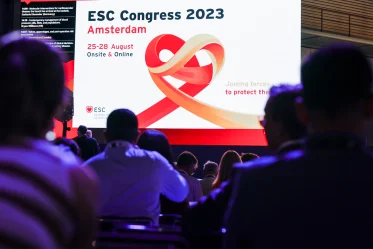This is a statement made at the 68th Session of the WHO Regional Committee for the Eastern Mediterranean on Accelerating Health Emergency Preparedness and Response in the EMRO Region.
Honourable Chair, Distinguished Delegates,
The World Heart Federation welcomes the opportunity to address the Regional Committee on one of the most critical subjects of our time.
We congratulate the EMRO secretariat on this comprehensive report on health emergency response and recognize the successes achieved and the barriers still faced but we wish to focus on a facet of it
The COVID-19 pandemic has taken an incalculable toll on the mental, physical, and fiscal health of our societies. This past year has united us in facing a truly global challenge. But it has also exposed deep, enduring fault lines and inequities in the population health and health systems of nearly every country represented here today.
The combined impacts of cardiac complications due to COVID-19, and interruptions to crucial medical interventions and ongoing care for people living with cardiovascular diseases will almost certainly exacerbate the already huge burden borne by stressed and often ill-equipped health systems.
We therefore implore you to urgently address the key risk factors and preventative measures that can help fight cardiovascular diseases in the context of health emergencies such as COVID-19. We call on Member States of the Eastern Mediterranean Region to:
- Prioritize ongoing prevention, screening, and treatment for CVD conditions in national COVID-19 or general emergency response and recovery plans through concerted patient co-creation and collaboration.
- Increase domestic allocation of resources and develop targeted policies to tackle CVD risk factors, including the commercial determinants of health, through funding mechanisms such as taxation of unhealthy commodities.
- Integrate monitoring and data collection on CVD prevalence, comorbidities, and risk factors into measures of pandemic readiness, resilience, and response; and
- Strengthen Primary Health Care to ensure equitable and integrated access to essential health services, particularly for people living with CVDs and in low-resource settings.
- We welcome the EMRO regions focus on digital health mentioned yesterday and welcome its use in CVDs to solve some of the issues we mentioned above where it can be useful
We thank you for your attention.


